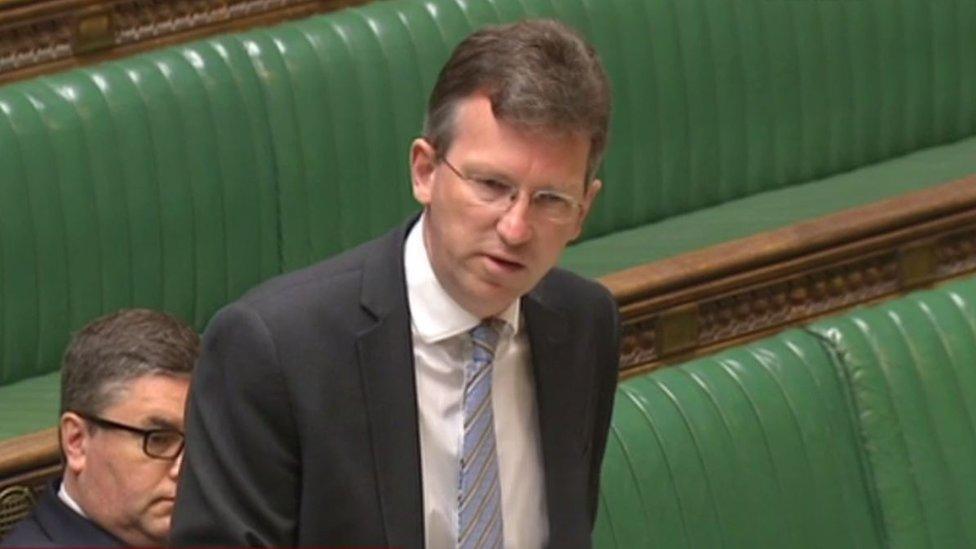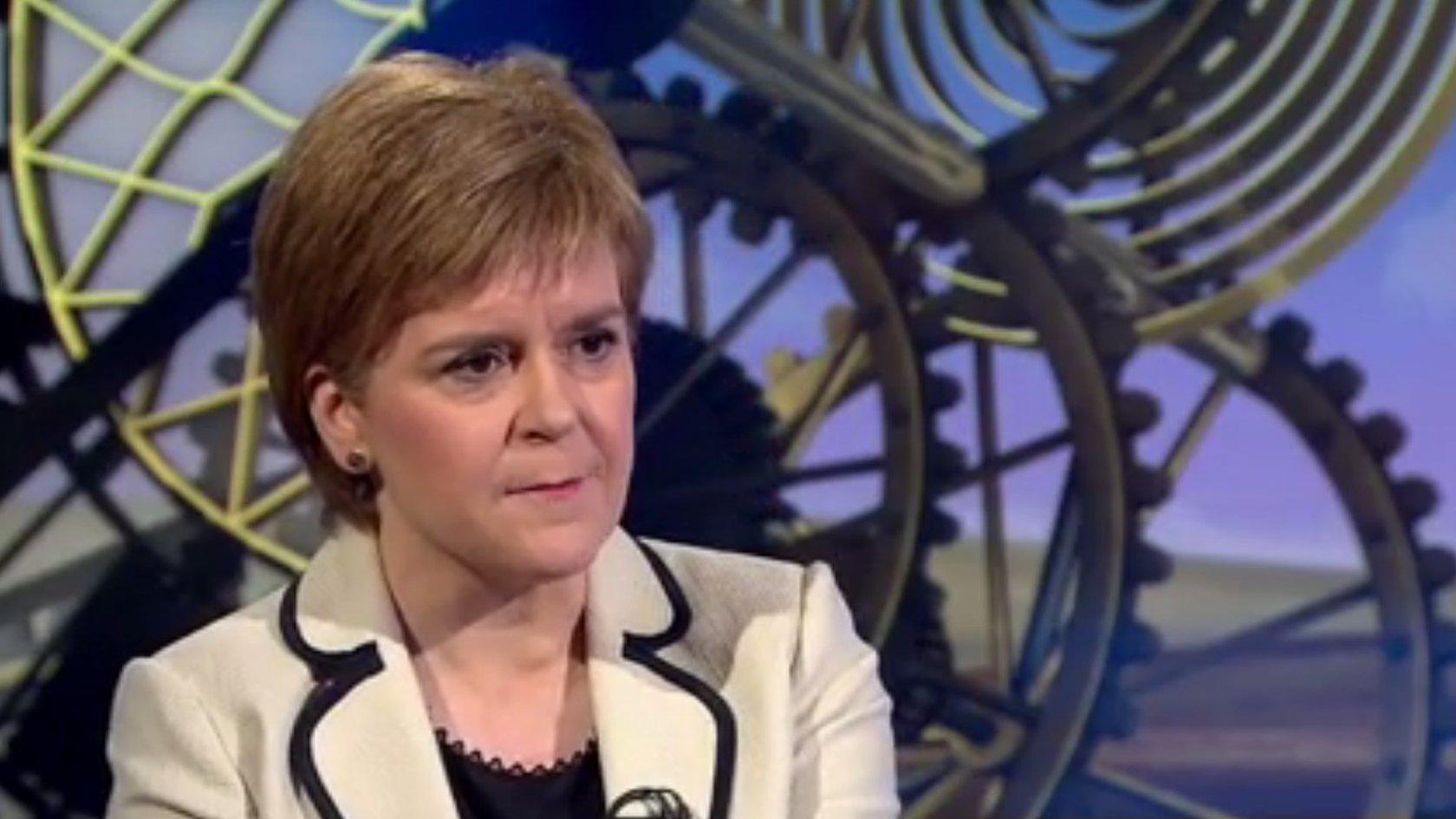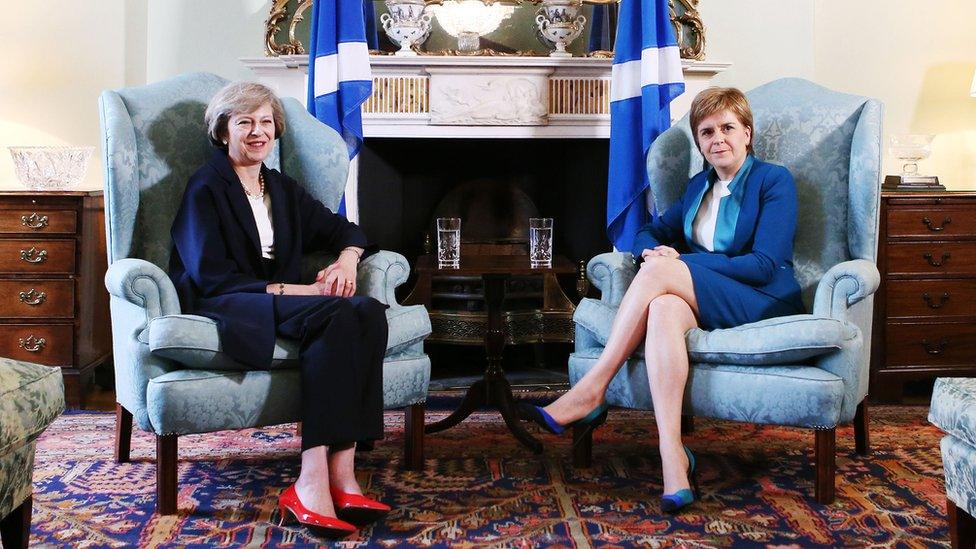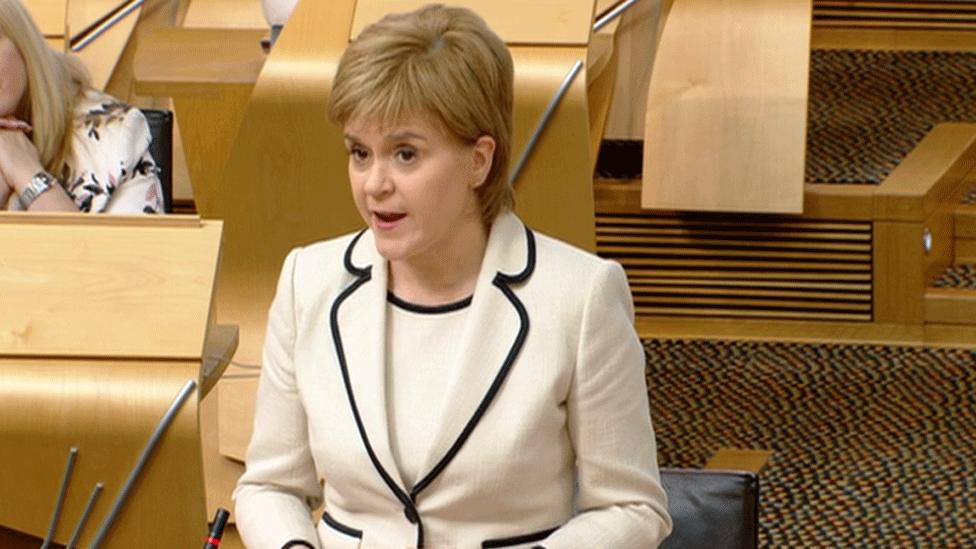Attorney General: No Scottish veto over Brexit
- Published

Mr Wright said "all of the United Kingdom" will leave the European Union following the Brexit vote
Scotland does not have a "veto" over Brexit and the whole of the UK will be leaving the EU, the UK government's attorney general has said.
First Minister Nicola Sturgeon has suggested Scotland could stay in the EU and the UK, with SNP MPs asking if "remain means remain" for Scotland.
Prime Minister Theresa May said she was "willing to listen to options".
But Attorney General Jeremy Wright underlined that Holyrood has no "veto" and said "all of the UK" would leave.
Scottish voters backed remaining in the EU by a margin of 62% to 38% in June's referendum, while the UK as a whole voted by 52% to 48% to leave.
The Scottish government has set up an expert group to study Scotland's options for retaining links with the EU, with all options including a second independence referendum "on the table".
During a question session at Westminster, Mr Wright, the chief legal advisor to the UK government, was questioned by SNP MPs on whether Scotland should be allowed to remain in the EU while the UK leaves, and on whether Holyrood could wield a "veto".
'Held to ransom'
Glasgow Central MP Alison Thewliss then queried whether the government had the legal authority to trigger Article 50, the formal process of leaving the EU, without the legislative consent of devolved administrations like Holyrood.
Mr Wright said: "I think it is perfectly right that all parts of the UK including the governments of the devolved administrations should be able to participate in the process of developing the UK's approach to these negotiations.
"But this does not mean that any of the parts of the UK have a veto over this process - so consultation most certainly, but veto I'm afraid not."
The attorney general also insisted that "all of the UK" will be leaving the EU.
David Nuttall, the Conservative MP for Bury North, had voiced his concerns that the UK could be "held to ransom by the Scottish nationalists".
Mr Wright replied: "I think the prime minister has been clear that the United Kingdom will leave the European Union, and that means all of the United Kingdom.
"But I think it's very important that in the process of leaving the EU, all parts of the UK have the opportunity to contribute to the negotiations that we will engage in, and that is the spirit in which the UK government will approach this process."
At her first session of questions to the prime minister on Wednesday, Ms May told the leader of the SNP group at Westminster, Angus Robertson, that "some of the ideas being put forward are impracticable, but I am willing to listen to options".
- Published17 July 2016

- Published15 July 2016

- Published28 June 2016
